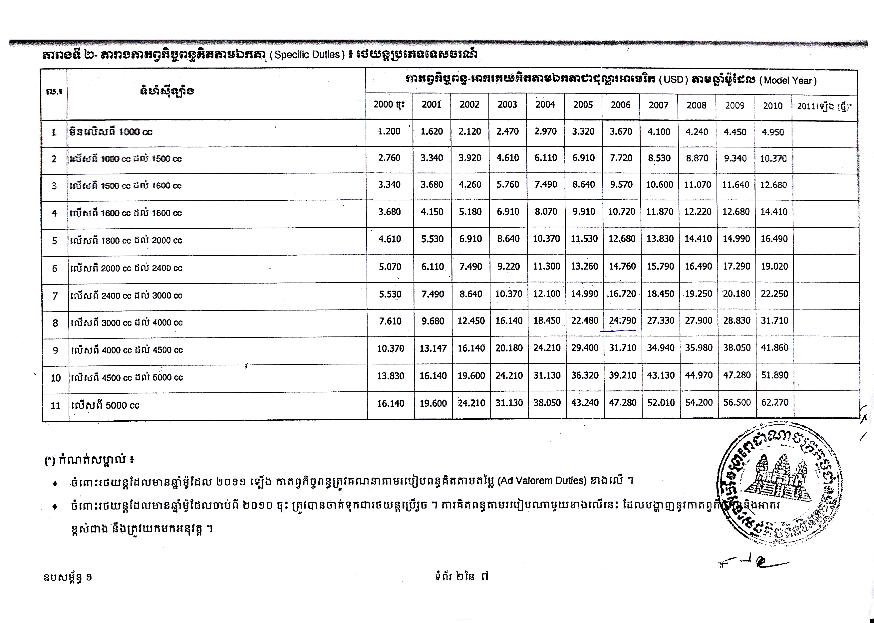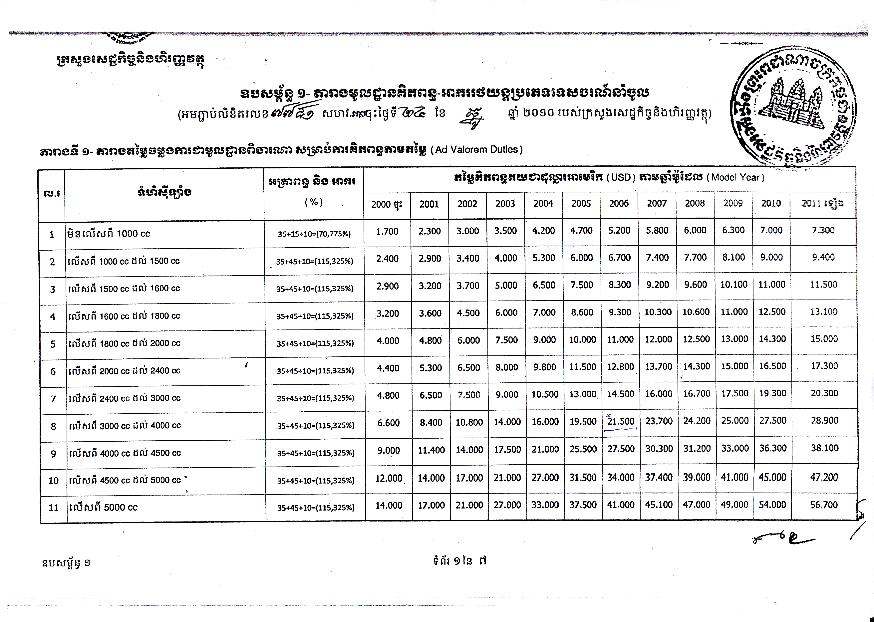Reading this article if you plan to import cars into Cambodia
Op-Ed: Cambodia As It Is
Importing a Vehicle
The way I see it the field is not exactly undercrowded. There is practically a used-car dealership on every corner. Now if somebody wanted to import a car on his own because they just don’t want to drive another Toyota or Lexus, here is a look at what awaits them.
First you need to get an import company to do all the customs clearances, import license, etc. If you do it on your own a ‘penalty’ fee of 20% on the import duty becomes due. Seeing that most import companies charge only 2% of the cargo value or a minimum of $150, I found this very reasonable. Plus who can negotiate with the customs officers? Certainly, not an in these matters ignorant foreigner. One may drive a good bargain at the market but with these people you are lost.
First you need to find out the assessed value of the car you are planning to import. The customs code does not do this by make, mileage and market value but uses an ‘arbitrary’ value as the basis for their computation of any duty and tax due on the vehicle. This may sound pretty simplistic but in essence is the only practical way of dealing with the high potential of rigged invoices. The customs code uses the engine displacement and the year. Here is the schedule:
The ad valorum duty and tax can be found in this schedule. The 35% is the import duty, the 45% is the excise tax (I call it the luxury tax), and the 10% is the added value tax. These rates are compounded so that the total will be 115.325%.
But, of course, this is not all. You will have to pay for shipping the car wherever it comes from. If it is only one car this is extremely expensive. There are no roll-on/roll-off services available to Cambodia. So most cars are shipped in containers. This can run anywhere from $4500 to $5,500 for a single car from the West Coast of the U. S. It’s not a whole lot cheaper from Europe but there are plenty of RO/RO services to Singapore. Let’s just use $1500 as an average. Your importer may hook up with another shipment so that 4 cars can be shipped in one 40’-container.
So here is the tally for a 2006 Audi A6 2.4ltr., which is officially listed at $12,800 (though you will be lucky to get one for this kind of money. They are around $15,000 to $20,000 depending on mileage).
Shipping $ 1,500
Misc. shipping fees (bunker adjustment, THC, etc. $ 500
Import duty/tax $14.760
Customs clearance $ 350
Customs permit $ 250
Camcontrol $ 15
Use of import license of the import company $ 256
For a total of $ 17,631
If you just use the customs value of the car $ 12,800
You end up paying $ 30,431
Now you understand where those high used-car prices come from. 115.325 % is steep; but governments of poor countries that have to import most of their goods always levy high import duties as their primary revenue. Originally Cambodia used a flat rate of $2500 per car; but when they came in in bigger numbers they quickly raised it based on market values – Sam Rainsy was the initiator of that back when. The customs people at that time sat there poring over French and U. S. classified ads in car magazines and newspapers.
Finally they arrived at more varied tax rates, very high ones that goes without saying, but the World Bank mandated a set schedule not to exceed 35%, which will eventually come down to 10% in 4 or 5 steps until 2020, if I am informed correctly. But the government being no slouch quickly instituted the ‘luxury’ tax of 45%, which will most likely stay forever.
On the whole the car values are pretty decent in my view. Last year I bought a 2006 Prius for $17,500. I was amazed it was so cheap. In the U. S. that car still went for around $14,000 but in the duty schedule it is listed at a mere $7,720 because the gasoline engine only has 1.5 ltr., never mind that the combined HP output is something like 150.
Now after all, perhaps you don’t really need that Audi, BMW, or Mercedes you fancy and can do with a nice Toyota Camry, although a 2007 model will still set you back something like $27,000. But seeing the benefit of cheap service and repairs, it certainly makes economic sense.


